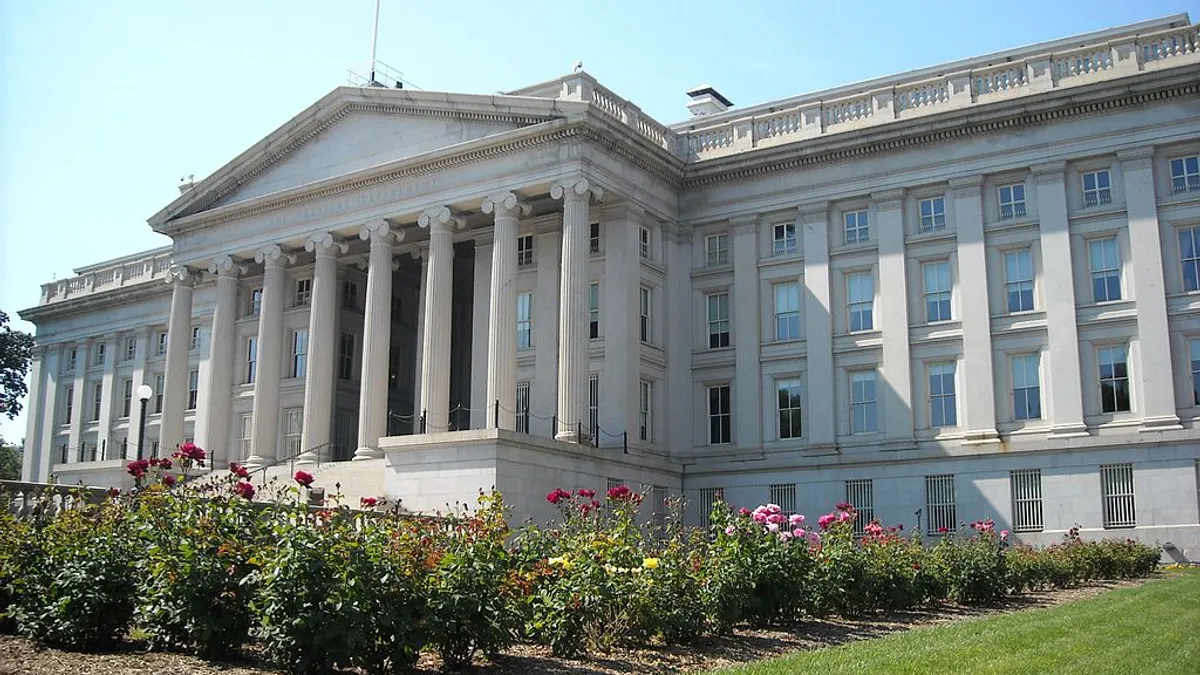Dive Brief:
-
Comerica Bank renewed a five-year contract with the Department of the Treasury’s Bureau of the Fiscal Service to continue operating a prepaid card debit program for Social Security recipients and veterans, according to a release.
-
The Dallas-based bank has come under fire for its handling of fraud cases in the Direct Express program. A federal lawsuit against Comerica alleges thousands of card recipients were victims of fraud whose claims were routinely denied.
-
The Bureau of the Fiscal Service said it selected Comerica "after conducting a competitive selection process and evaluating proposals from multiple financial institutions."
Dive Insight:
The Direct Express program provides 4.5 million Americans with a prepaid debit card to receive monthly Social Security or veterans benefit payments. The majority of recipients do not have a bank account, according to the Bureau of the Fiscal Service.
The contract renewal with Comerica follows a report last year from the Treasury Department's Office of the Inspector General that recommended the bank's compensation be cut over poor performance, according to American Banker.
According to the lawsuit filed in San Antonio, card issuer Comerica Bank and Direct Express operator Conduent Business Services conducted "sham investigations" into fraud charges before rejecting loss claims. Comerica and Conduent left Direct Express card users "holding the bag on hundreds, thousands, and even tens of thousands of dollars of fraudulent charges by unauthorized persons," the lawsuit said.
Comerica shut down a component of the Direct Express program in 2018 after uncovering fraud.
The new contract implements stricter performance measures and financial penalties for noncompliance, a spokesperson for the Bureau of the Fiscal Service told American Banker.
Other changes in the new contract include a reduced fee — from $1.50 per transaction to $0.85 — for getting cash out at Walmart stores, the spokesperson said.
“The new agreement with Comerica Bank implements rigorous customer service requirements, requires more reporting, reduces cardholder fees for certain transactions, and lowers the overall cost to the federal government from the previous agreement,” the bureau said in its release.
Financial terms were not disclosed.
Comerica’s first contract with the Treasury Department began in 2008 and was renewed in 2014.











